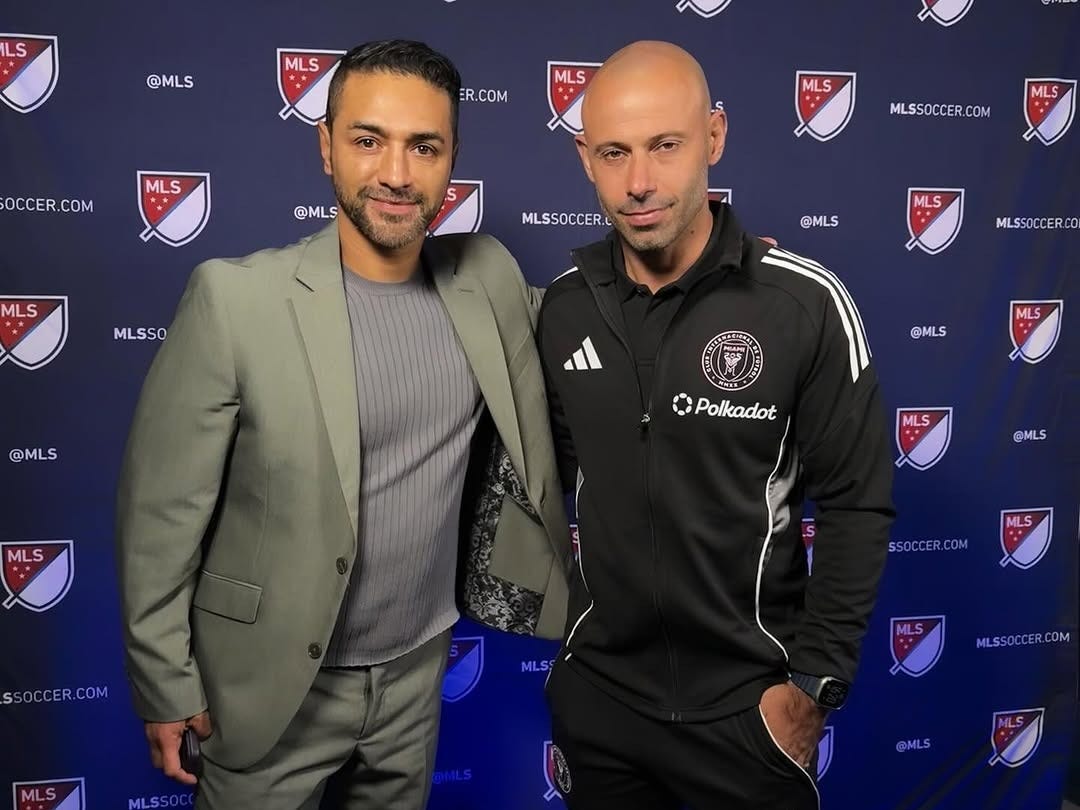🇲🇽 Why aren't there more Mexican managers in Liga MX & abroad?
Three of 18 Liga MX managers are from the country & few are working abroad.
As his career progressed, Mariano Trujillo became more interested in the sport than the average soccer player.
Passionate and curious about the game, he didn’t want to go through the motions of a training drill or simply listen to and execute the tactical plan. He wanted to learn more.
“I was always interested in asking managers and really understanding why we had to do certain things. Sometimes it created problems for me with managers, other times it made managers have a lot of confidence in me,” he recalled this week.
So it was no surprise that when Trujillo joined Jaguares de Chiapas in 2012, he did so as an assistant coach. Manager José Guadalupe Cruz also registered him as a player, and Trujillo played a dozen Copa MX matches and a pair of league games. His coaching education, though, was far more important to him than minutes played.
Yet, rather than on a touchline, Trujillo now is seen on television as a commentator for Fox Deportes and MLS’ Apple TV broadcasts. He earned his coaching badges in the U.S. and said he’d consider working as a coach in the future, but for now is happy working in media rather than trying to lead a team.
His story is not unique. There are currently just three Mexican managers in the 18-team Liga MX. And while there are a handful of Mexican managers working abroad there are far fewer than expected for the largest Spanish-speaking country in the world, one obsessed with the sport.
“It takes a bit of work for me to understand why it’s happening, but there is a lack of Mexican coaches,” Trujillo said. “Unfortunately, in Mexico where - like in Brazil, Colombia, Argentina and Chile - there should be a preference for the local market and then they have some go abroad, in Mexico there’s no confidence in a Mexican manager.
“I think there’s a narrative or an idea that Mexican players who try to become managers don’t prepare well, who aren’t up to date. That leads the owners, club presidents and directors to look for foreigners.”
Sometimes those managers from abroad work out, sometimes they don’t, but it often means there aren’t opportunities for Mexican managers to try. A weak second division affords a few more chances for players like Trujillo to transition from playing to coaching, but even there foreign managers are in vogue.
Why aren’t there more Mexican coaches? And what has to be done to produce more Mexican managers who triumph abroad like current national team coach Javier Aguirre? No one has easy answers, but one of the three managers working in Liga MX right now agrees there need to be more opportunities and a shift in perception.
“There’s a wrong perception here in Mexico in the media, social media, owners, sporting directors that we the young Mexican coaches are not up to date in terms of methodology or man management,” Atlas manager Gonzalo Pineda told me this week. “I think that’s very far from reality.”

In addition to managing Atlanta United and working on Brian Schmetzer’s staff with the Seattle Sounders, Pineda did his coaching badges in Europe. He has observed coaches at a number of top European clubs and said he often chats with Mexican peers about the training sessions, tactical ideas and overall coaching philosophies seen at those places.
“I don’t hear many differences between the education the other coaches have and what I heard in UEFA Pro,” he said. “I feel like it’s a rumor or bad lie spread among football people, and we’re here to prove them wrong.”
That idea leads to directors going a different direction in their coaching searches, but also means managers aren’t able to have success or learn from their mistakes.
“I think Mexican managers are in a perfect storm,” said Jacques Passy, a Mexico City native who has coached national teams and clubs in the Concacaf region and also led the Johan Cruyff Institute’s Mexico program.
When young managers do break through, there’s a feeling that their accomplishments aren’t celebrated. Efrain Juarez won the league and the cup with Atlético Nacional in late 2024 and left the club because of issues with directors. The 36-year-old worked in MLS and Belgium before taking a job in Colombia.
“He was magnificent. It was brutal, and here in Mexico they’re not giving it a fair amount of time (in the press),” Passy said. “He should be automatically one of the top three coaches in the country, but it doesn’t happen. No one talks about it. Coaches grow saying, ‘My goal is Liga MX,’ and when there are so few spots, it’s so tough to get there.”
Many of these young Mexican coaches are in touch with each other often, trading ideas and support in group chats or getting together for meals. During those conversations, the feeling persists that they’re not getting the same shot some of their counterparts are elsewhere in Latin America.
Two of the three Mexican managers currently working in Liga MX, Pineda and Quéretaro’s Benjamin Mora, are in their 40s. (The other is long-time coach Victor Manuel Vucetich at Mazatlan). Pineda and Mora both got their first opportunity to manage in a first division outside Mexico before taking a job in Liga MX.
Pineda worked with the Seattle Sounders before becoming head coach of Atlanta United. Mora served as an assistant in Mexico and coached in a lower league, then went to Johor Darul Ta'zim and won the Malaysian Super League four times before returning to North America.

The Atlas manager said he’s often asked about carrying the torch for Mexican coaches amidst a lack of countrymen in similar roles.
“It’s weird,” Pineda said. “I feel a responsibility because other Mexican coaches are hoping we do a good job here so more Mexican coaches can have the same opportunity I have now.”
In a copycat business, the success of a coach like Juarez or Pineda or even current Costa Rica manager Miguel Herera (who is 56) or Guatemala coach Luis Fernando Tena (67) could lead to more chances for Mexican managers.
But, Passy noted, there also are things that must happen structurally to improve the overall quality of Mexican coaches, rather than relying on a few outliers who have been able to transition top-level playing careers into coaching educations abroad.
While Pineda and his colleagues are following methods from Europe’s top leagues, Passy feels the Mexican federation’s own coaching license program could be significantly modernized.
There also are cultural factors. As a country, Passy said, Mexico often rejects innovation and is skeptical of putting young people in important roles - something that manifests itself in managers having to wait years for their first head coaching job while foreign bosses may be able to debut much sooner.
“You have managers that are debuting rather old, when the debut of a manager right now in the world is usually 38, 39, 40. In Mexico, they still think managers are young when they’re 50-52, which is a joke. At that point you should be at a national team or top-tier team,” Passy said. “I do believe the program is an issue, and I do believe Mexican managers are in a storm where there’s little innovation, a lot of arrogance.
“It’s part of the Mexican football arena in which Mexico is well behind.”

It’s not clear if there’s one solution to Mexico’s manager issue. Perhaps it will take a few Mexican managers lifting trophies to once again kick off a boom of players (and non-players like successful Liga MX managers Martin Anselmi and Nicolas Larcamon) deciding to become coaches. Maybe a stronger licensing program will help aspiring coaches achieve better results early in their careers.
Trujillo sees it as a much more difficult problem to solve.
“Since the owners aren’t going to take initiative, I think there should be rules that force them to do it - which is really difficult,” he said. “The whole Mexican soccer structure would have to change.”






This is very interesting, thank you
So where are the other 15 Liga MX managers from? Are the Mexicans being squeezed out by South Americans or Europeans or a mix?
This is a good article on an important topic, Jon. I would have gladly read twice as much.